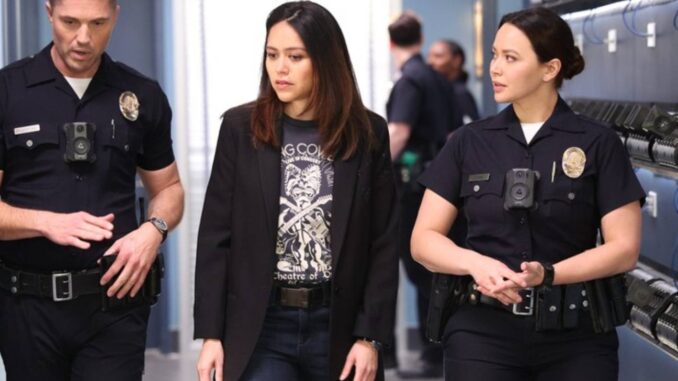
The Unbroken Chronicle: Why "No Time Jump" is The Rookie's Masterstroke for Season 8
The heartbeat of any long-running television series often resides in its ability to evolve, to challenge its characters, and to surprise its audience. Sometimes, this evolution takes the form of a dramatic time jump, a narrative device designed to fast-forward past doldrums, introduce new stakes, or reinvent character dynamics. Yet, in a refreshing counter-narrative, The Rookie showrunner Alexi Hawley has confirmed that Season 8 will continue without a major temporal leap. This isn't merely a scheduling decision; it's a profound statement on the show's narrative philosophy, a deliberate choice to lean into the nuances of ongoing growth, sustained tension, and the unvarnished reality of life on the beat.
Foregoing a major time jump is, first and foremost, an affirmation of seamless narrative continuity. In a world accustomed to quick cuts and episodic resets, The Rookie thrives on the cumulative weight of its characters' experiences. Every arrest, every personal struggle, every evolving relationship contributes to a rich, interconnected tapestry. A time jump, while offering a clean slate, inevitably sacrifices the immediate aftermath of cliffhangers and the organic progression of long-term arcs. Imagine the emotional fallout of a season finale—a near-death experience, a pivotal relationship milestone, or a lingering threat—only to have it summarized away in a few lines of exposition a year later. Hawley’s decision ensures that the repercussions of Season 7’s events will be felt in real-time, allowing the audience to witness the characters grapple with their choices and circumstances with forensic precision. It’s an immersive commitment to the "daily grind" aspect of policing, where challenges don't simply vanish but morph and evolve.
Beyond plot mechanics, the absence of a temporal leap is crucial for authentic character development. The Rookie has always been about growth, particularly for John Nolan, the titular "rookie" who started his journey later in life. His path from wide-eyed newcomer to seasoned training officer has been a meticulously charted trajectory, each step earned through a succession of small victories and significant setbacks. Relationships, too, like the fan-favorite "Chenford" dynamic or Nolan's partnership with Bailey, are built on gradual trust, shared experiences, and incremental adjustments. A time jump could easily truncate these arcs, presenting characters as having "solved" their issues or "moved on" without the audience witnessing the arduous, often messy, process. By staying in the present, Hawley allows these individuals to breathe, to struggle, and to grow at a pace that feels genuinely human, rather than being force-fed pre-packaged evolutions. We see the subtle shifts in their professional demeanour, the deepening lines of their personal connections, and the weight of their cumulative experiences etched onto their very beings.
Furthermore, the decision to avoid a time jump fosters a potent sense of sustained stakes and immediate immersion. Villains like Elijah Stone or Oscar Hutchinson don't magically disappear; their influence can linger, their schemes unfolding across episodes rather than being neatly contained within a single season's arc. Ongoing departmental challenges, the political pressures of the job, or even the slow burn of a cold case can maintain their urgency when not disrupted by a temporal gap. This keeps the audience on the edge of their seats, invested not just in episodic resolutions but in the continuous unfolding of a living, breathing world. It transforms the show from a series of isolated stories into a continuous chronicle, inviting viewers to feel truly present in the characters' lives, sharing their anxieties and celebrating their triumphs as they happen.
Of course, this approach isn't without its creative challenges. Without the narrative shortcut of a time skip, the writing team must constantly innovate to keep storylines fresh and prevent stagnation. However, this necessity breeds ingenuity. It encourages a deeper dive into the characters' internal lives, exploring their personal dilemmas, their evolving moral compasses, and the everyday heroism that often goes unnoticed. It forces a focus on new types of cases, unexpected external pressures, and the ever-shifting landscape of the city they protect.
In essence, Alexi Hawley's announcement for The Rookie Season 8 is a commitment to realism, depth, and the power of the unfolding present. It's a testament to the belief that the most dramatic stories are often found not in leaps into the unknown, but in the gritty, detailed, and unbroken continuum of life as it's lived. By resisting the temptation of the time jump, The Rookie reaffirms its identity as a show that values the journey over the destination, inviting us to walk alongside its characters, day by day, as they continue to navigate the complex, dangerous, and profoundly human world of policing. The unbroken chronicle promises a Season 8 that is not just a continuation, but a deepening of the story we've come to love.